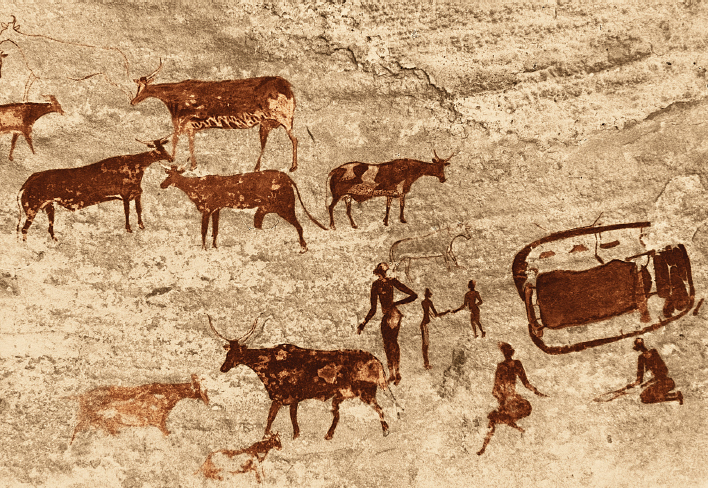Understanding World Societies:
Printed Page 270
> How did agriculture affect life among the early societies in the western Sudan and among the Bantu-speaking societies of central and southern Africa?

Rock Painting at Tassili, Algeria
This scene of cattle grazing while a man stands guard over them was found on a rock face in Tassili n’Ajjer, a mountainous region in the Sahara where over fifteen thousand of these paintings have been catalogued. The oldest date back 9,000–12,000 years. Behind the man are perhaps his two children at play and his two wives working together in the compound. A cow stands in the enclosure to the right. (George Holton/Photo Researchers, Inc. Colorization by Robin Treadwell)
This scene of cattle grazing while a man stands guard over them was found on a rock face in Tassili n’Ajjer, a mountainous region in the Sahara where over fifteen thousand of these paintings have been catalogued. The oldest date back 9,000–
NNew crops introduced from Asia and the establishment of settled agriculture profoundly changed many African societies, although the range of possibilities largely depended on local variations in climate and geography. Bantu-